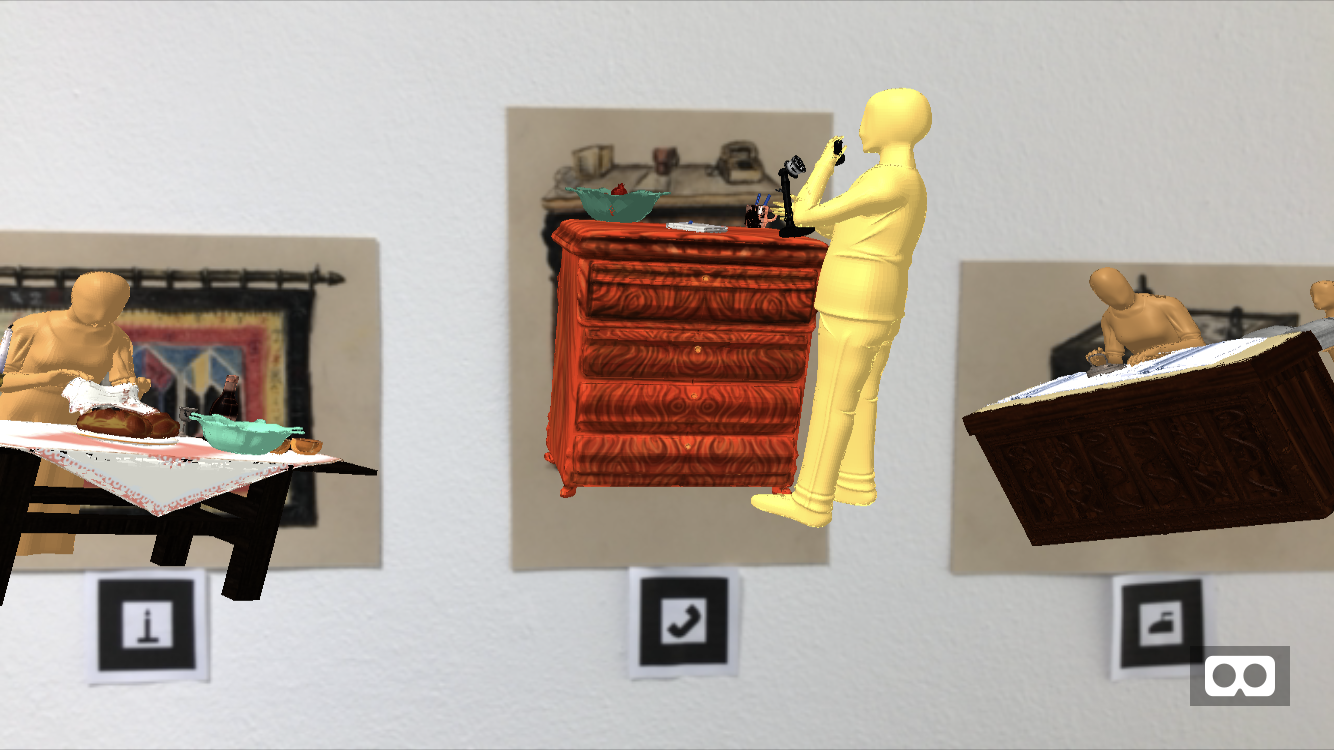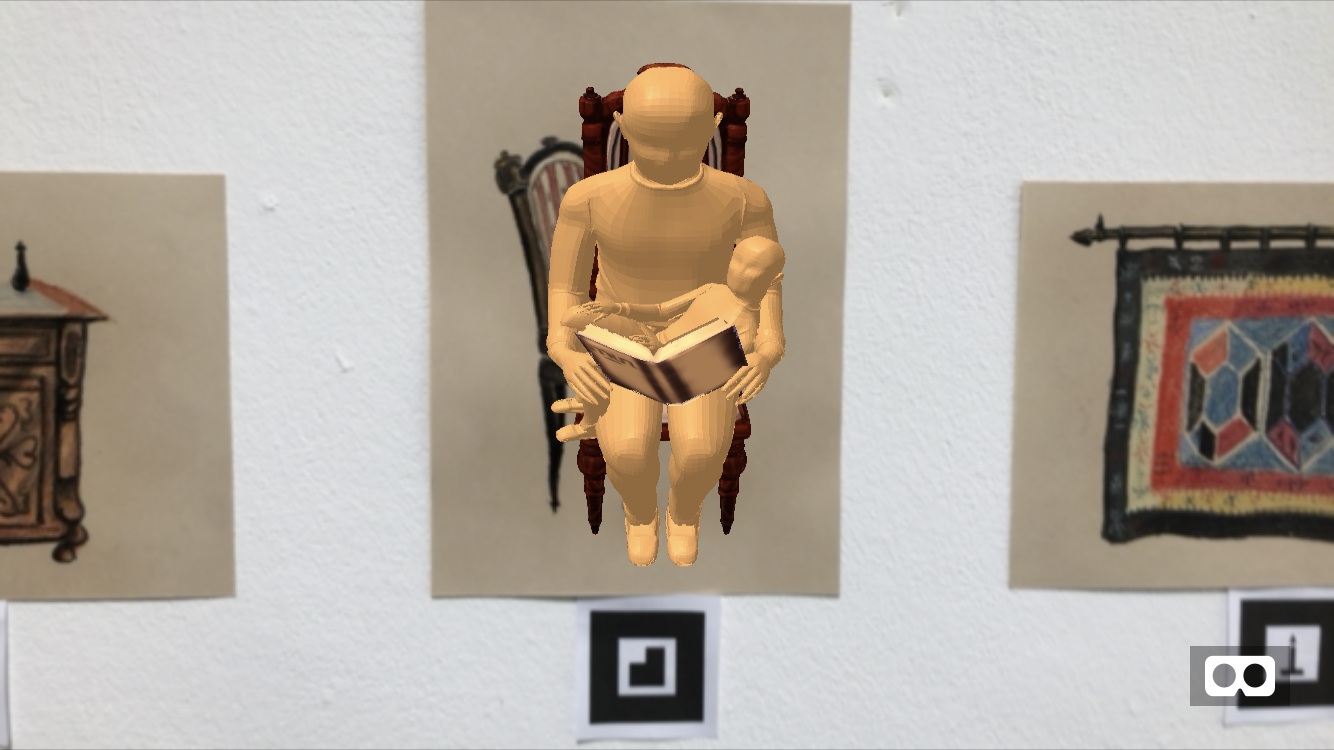Judaism and Family

To return to the main page click here.
Target:

A simple scene from ever day life. Who might the man be calling?

I personally like to imagine that he is calling his family. We see the parents interacting with and raising their child but they have parents of their own too.
Living Jewish
Family is one of the most important aspects of jewish life (1). Such as in many religions, the parents’ role is to raise their child in their faith, giving them the knowledge and tools they need to live a good, anchored life. Because judaism is less about what you believe and more about what you do (2), the aspect of role modelling is particularly important here.
That can, depending on a family’s personal circumstances, denomination and values, include the weekly religious rhythm of daily prayers, shabbat and holidays. But also almost all actions in day to day life can be done consciously and while considering one’s faith and values. It allows for a mindful lifestyle.
This isn’t to say that judaism forces itself into every aspect of ones life, rather it can be invited and incorporated in though. In interpersonal communication the value to not shame others (3) might change how someone reacts to confrontation. Hospitality is paramount (4) and enables amazing conversations, all through opening one’s doors and hearts. By considering the teachings of the Torah, giving to the poor (5) (tzedakah) and visiting the sick (6) (bikur holim), the community is enriched and people’s lives can be improved.

Family
As the parents have the job of raising their child, the child has the job of respecting the parents (7). Everyone in a household should strive towards living together in harmony, despite the many factors of life that can cause issues (e.g. differences in religious observation (8)). How exactly that looks and works is up to the individual circumstances.
Technology allows people to stay in touch even when things are hectic and to keep in contact with one’s family even if one lives far apart. The wife in the family who’s archive I drew from had moved from Northern to Central Germany, I can imagine that they may have used phones to communicate with her parents.

Rosh Hashanah (9)
The religious new year of Judaism (not calendar New Year (10) though), literally translates to “the head of the year”, is one of the high holidays. It marks the beginning of a ten day period of repentance, leading up to Yom Kippur (11), the most holy day of judaism.
Rosh Hashanah however is a day of celebration (12). Most jewish holidays require abstaining from work, extra prayer and celebration with the congregation and family. Rosh Hashanah in particular involves a few unique aspects:
- Blowing the Shofar (an instrument made of a ram’s horn)
- Tashlich (13): Many will pray at a moving body of water
- Lighting evening candles
- Special meals and sweet snacks
These special foods include a round challah (unlike the usual loaf of braided bread, it’s baked in a circular form), specific fruit (in particular apples and pomegranates are used) and honey. One dips the fruit into the honey so the new year starts off sweet.

Celebrating Together
I imagined the scene as the father calling up the extended family to make plans for the high holidays.
But even without the background knowledge of Rosh Hashanah and the jewish importance of family, the viewer can also just see the scene and see the banality of it, the normalcy in jewish existence. Being jewish is not just about religious rites and prayers, it is about living and making the best one can of one’s life, just like everybody else.

Links:
- https://www.bbc.com/bitesize/guides/z44dtfr/revision/3
- http://www.jewfaq.org/beliefs.html
- https://www.myjewishlearning.com/southern-and-jewish/dont-run-to-shame-people/
- https://www.jewishvirtuallibrary.org/hospitality-in-judaism
- http://www.jewfaq.org/tzedakah.htm
- https://www.myjewishlearning.com/article/how-to-visit-the-sick-in-judaism/
- https://www.myjewishlearning.com/article/jewish-parentchild-relationships/
- https://www.myjewishlearning.com/article/families-and-jewish-differences/
- https://en.wikipedia.org/wiki/Rosh_Hashanah
- https://www.myjewishlearning.com/article/how-many-jewish-new-years/
- https://en.wikipedia.org/wiki/Yom_Kippur
- https://www.chabad.org/library/article_cdo/aid/4830/jewish/How-Is-Rosh-Hashanah-Celebrated.htm
- https://www.chabad.org/library/article_cdo/aid/564247/jewish/What-is-Tashlich.htm





